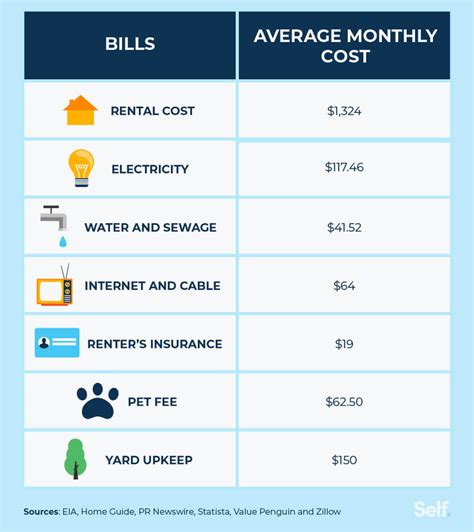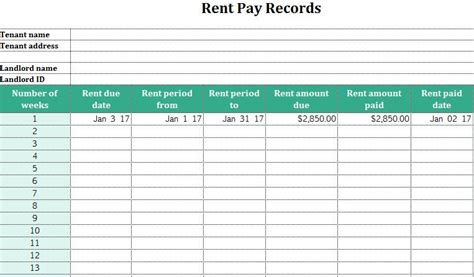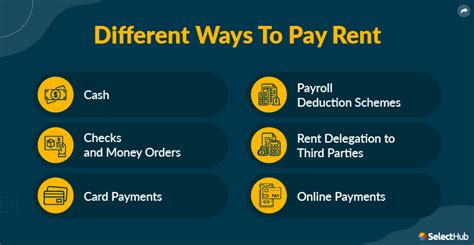My Rent And Bills Need Paid

As the cost of living continues to rise, many individuals find themselves navigating the delicate balance between managing their finances and ensuring their rent and bills are paid on time. In today's economic climate, it's crucial to have a comprehensive understanding of personal finances and effective strategies to stay afloat. This article aims to provide an expert guide on how to tackle the challenge of paying rent and bills, offering practical insights and real-world examples to help you navigate this essential aspect of financial management.
Understanding Your Financial Landscape

Before delving into the strategies for paying rent and bills, it's imperative to grasp the current state of your finances. This involves creating a clear and comprehensive budget that outlines your income, expenses, and savings. By understanding your financial landscape, you can make informed decisions and allocate your resources effectively.
Let's take the example of Sarah, a young professional living in a bustling city. Sarah earns a steady income, but with rising costs, she often finds herself struggling to keep up with her rent and utility bills. By creating a detailed budget, Sarah was able to identify areas where she could cut back on unnecessary expenses and allocate more funds towards her essential payments.
Creating a Budget: A Step-by-Step Guide
Here's a practical guide to help you create an effective budget:
- Track Your Income: Start by calculating your monthly income, including your salary, any bonuses, or additional sources of revenue. Be sure to consider the net amount after taxes and deductions.
- Identify Fixed Expenses: Fixed expenses are those that remain relatively constant each month, such as rent, mortgage payments, insurance premiums, and loan repayments. Calculate the total amount you need to set aside for these.
- Variable Expenses: Variable expenses can fluctuate from month to month and include groceries, dining out, entertainment, and transportation costs. Estimate an average amount for these expenses, allowing for some flexibility.
- Discretionary Spending: Discretionary expenses are non-essential but can enhance your quality of life. This could include gym memberships, streaming services, or hobbies. Allocate a reasonable budget for these, ensuring they don't impact your ability to meet essential payments.
- Emergency Fund: It's crucial to set aside a portion of your income for unexpected expenses. Aim to save at least 3-6 months' worth of living expenses to cover emergencies like medical bills or sudden repairs.
- Review and Adjust: Regularly review your budget to ensure it aligns with your spending habits and financial goals. Adjust your allocations as needed, especially if you experience significant changes in income or expenses.
Negotiating Rent and Bills: A Powerful Strategy
In certain situations, negotiating your rent or utility bills can provide significant relief and help you manage your finances more effectively. While it may seem daunting, approaching landlords or service providers with a well-prepared plan can lead to favorable outcomes.
Consider the case of David, a tenant facing a rent increase that would strain his finances. David decided to approach his landlord with a proposal. He presented a detailed budget, highlighting his commitment to paying rent on time and offered to sign a long-term lease in exchange for a reduced rent increase. The landlord, impressed by David's proactive approach, agreed to a compromise, allowing David to maintain his living situation without financial strain.
When negotiating, it's essential to come prepared with the following:
- Research and Data: Gather information about the local rental market or utility rates. This shows your knowledge and can strengthen your case.
- A Well-Crafted Proposal: Present a clear and concise plan, highlighting the benefits to both parties. For example, you could offer to sign a longer lease or agree to timely rent payments.
- Alternatives: Have backup options in mind. If your initial proposal is not accepted, be prepared to negotiate further or suggest alternative solutions.
- Remain Respectful: Maintain a professional and respectful tone throughout the negotiation process. Remember, the goal is to find a mutually beneficial solution.
Maximizing Your Income: Strategies for Financial Growth

While managing expenses is crucial, increasing your income can provide a significant boost to your financial stability. Here are some strategies to consider:
Side Hustles and Freelancing
Exploring side hustles or freelance opportunities can be an excellent way to supplement your income. Whether it's offering graphic design services, becoming an Uber driver, or starting an online business, these ventures can provide additional financial security.
Take the example of Emily, a talented photographer who turned her passion into a profitable side hustle. By offering photography services on weekends and evenings, Emily was able to earn extra income, which she used to pay off her student loans and save for her dream vacation.
Career Advancement and Salary Negotiation
Advancing in your career can lead to increased income and financial stability. Consider pursuing additional certifications, attending industry events, or taking on leadership roles to enhance your professional growth. When the time is right, don't be afraid to negotiate for a higher salary or better benefits.
John, a software developer, recognized the importance of continuous learning. He invested in online courses and attended conferences to stay updated with the latest technologies. As a result, John was able to secure a promotion and a significant salary increase, allowing him to comfortably manage his rent and bills.
Investing Wisely: Building Wealth
Investing can be a powerful tool for growing your wealth and securing your financial future. However, it's essential to approach investing with caution and seek professional advice when needed.
Let's look at the story of Maria, who started investing in the stock market with a small amount each month. Over time, her investments grew, and she was able to generate passive income. Maria's disciplined approach to investing allowed her to pay off her debts and achieve financial freedom.
| Investment Type | Potential Returns |
|---|---|
| Stocks | High potential for growth but also carries higher risk |
| Bonds | Lower risk, stable returns over time |
| Mutual Funds | Diversified investment, offering a balance between growth and stability |
| Real Estate | Long-term growth potential, but requires careful research and management |

Managing Debt: A Path to Financial Freedom
Debt can be a significant burden when trying to manage your finances. Developing a plan to tackle debt is essential for long-term financial stability.
The Snowball Effect: Paying Off Debt
The snowball effect is a popular strategy for paying off debt. It involves prioritizing debts based on their balance, starting with the smallest debt and working your way up. As you pay off each debt, the momentum and motivation build, leading to a sense of accomplishment.
Michael, burdened by multiple credit card debts, decided to implement the snowball effect. He focused on paying off his smallest debt first, then used the momentum to tackle the larger debts. With discipline and determination, Michael successfully eliminated his debt and improved his financial outlook.
Consolidation and Refinancing
Consolidating your debts into a single loan or refinancing existing loans can provide significant benefits. This strategy simplifies your repayment process and may offer a lower interest rate, reducing the overall cost of your debt.
Sarah, struggling with multiple student loans, decided to refinance her loans. By consolidating her debts and securing a lower interest rate, Sarah was able to reduce her monthly payments and save thousands of dollars in interest over the life of the loan.
Financial Planning: A Long-Term Strategy
Developing a long-term financial plan is essential for achieving your financial goals and securing your future. Here are some key considerations:
Setting Financial Goals
Define your short-term and long-term financial goals. Whether it's saving for a house, planning for retirement, or starting a business, having clear goals will guide your financial decisions.
Emergency Funds and Retirement Savings
Ensure you have an emergency fund to cover unexpected expenses. Additionally, start saving for retirement as early as possible. The power of compound interest can significantly boost your retirement savings over time.
Protecting Your Finances
Consider insurance policies to protect your finances in case of emergencies. Health insurance, life insurance, and disability insurance can provide a safety net, ensuring your financial stability even in challenging times.
Conclusion: Empowering Your Financial Journey

Paying rent and bills is a fundamental aspect of financial management, and with the right strategies and mindset, it can be a manageable and empowering process. By understanding your finances, negotiating effectively, maximizing your income, and managing debt wisely, you can take control of your financial future.
Remember, financial stability is a journey, and it's essential to stay informed, seek professional advice when needed, and adapt to the changing economic landscape. With discipline, determination, and a well-planned strategy, you can achieve financial freedom and live a life of comfort and security.
Frequently Asked Questions
What are some tips for creating an effective budget?
+
Creating an effective budget involves tracking your income and expenses, identifying fixed and variable costs, setting aside funds for emergencies, and regularly reviewing and adjusting your budget to align with your financial goals.
How can I negotiate my rent or utility bills?
+
To negotiate rent or utility bills, gather relevant data about the market or rates, prepare a well-thought-out proposal, and approach the negotiation process with a professional and respectful attitude. Be prepared to offer alternatives or compromise.
What are some side hustles or freelance opportunities to boost income?
+
Side hustles and freelance opportunities can include graphic design, photography, writing, tutoring, or driving for ride-sharing services. Explore your passions and skills to find the right opportunity for you.
How can I effectively manage and pay off debt?
+
To manage debt, consider the snowball effect, where you prioritize paying off smaller debts first. Consolidating debts or refinancing loans can also provide benefits by simplifying repayment and reducing interest rates. Remember to stay disciplined and focused on your financial goals.
What are some key aspects of long-term financial planning?
+
Long-term financial planning involves setting clear financial goals, building an emergency fund, saving for retirement, and protecting your finances with insurance policies. Regularly review and update your plan to adapt to changing circumstances and stay on track towards your financial aspirations.



